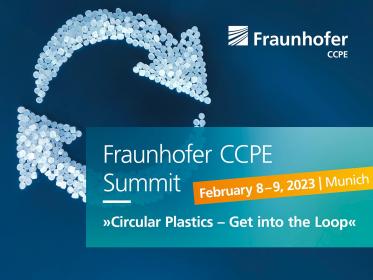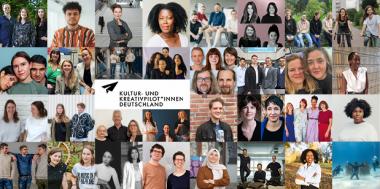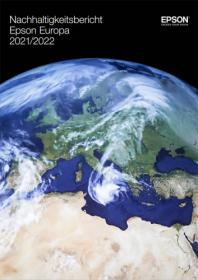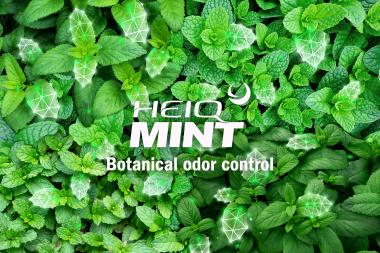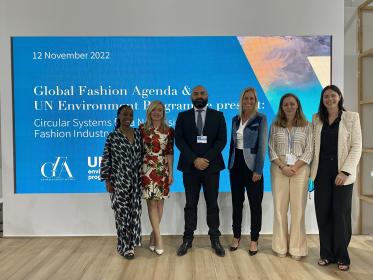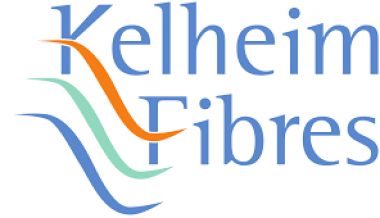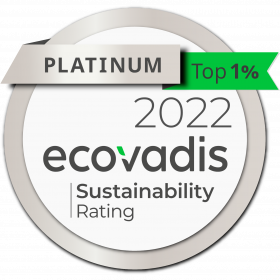Fraunhofer CCPE Summit 2023 für eine zirkuläre Kunststoffwirtschaft
Unter dem Motto »Get into the loop« trifft sich am 8. und 9. Februar 2023 beim Fraunhofer CCPE Summit erstmalig eine internationale Circular Economy Gemeinschaft unter der Leitung von UMSICHT-Institutsleiter Prof. Manfred Renner in München. Es ist der Startschuss für ein internationales Forum, das den Austausch von Lösungsideen und Innovationen für eine zirkuläre Kunststoffwirtschaft fördert. Sechs Fraunhofer-Institute widmen sich seit rund vier Jahre im Fraunhofer Cluster of Excellence Circular Plastics Economy CCPE der Frage, wie die Wertschöpfungskette von Kunststoff zirkulär gestaltet werden kann.
350 Millionen Tonnen Kunststoff werden weltweit in einem Jahr produziert. Damit dadurch nicht auch gleichzeitig 350 Millionen Tonnen Müll entstehen, kann eine Kreislaufwirtschaft diese Kunststoffe im Kreis führen und so Ressourcen und Umwelt schonen. Dieser Wandel zu einer zirkulären Kunststoffwirtschaft benötigt systemische, technische und soziale Innovationen. Zwei Tage lang stellen internationale Expertinnen und Experten sowie die Forschenden der sechs Mitgliedsinstitute im Munich Marriot Hotel in München dazu Strategien, Forschungsergebnisse und Umsetzungsprojekte vor. Das Ziel dabei: Den Wandel zu einer zirkulären Kunststoffwirtschaft mit Präsentation und internationalen Diskussionen beschleunigen.
Fraunhofer Kreislaufwirtschaft Fraunhofer-Institut für Umwelt-, Sicherheits- und Energietechnik UMSICHT Kunststoffe Kunststoffrecycling
Fraunhofer UMSICHT


